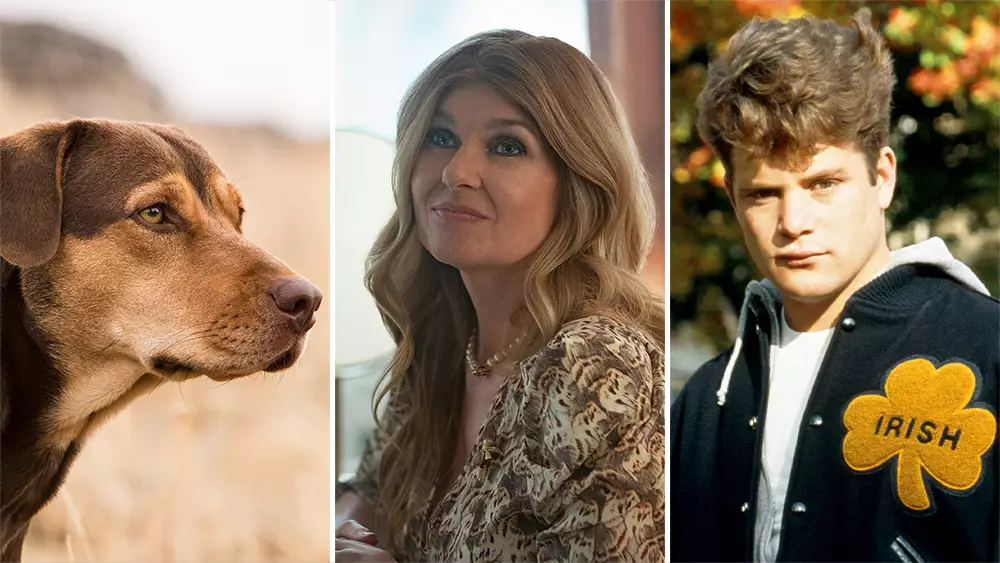As April blooms, Netflix is gearing up to unleash an enticing mix of films that speak to the soul, tickle the funny bone, and even resonate with the deeply introspective. The platform is not merely augmenting its roster; it seems to be making a concerted effort to cater to diverse emotional landscapes. With an impressive lineup, including deep stories like *The Life List* and heartwarming journeys such as *A Dog’s Way Home*, Netflix is attempting, perhaps ambitiously, to touch viewers’ hearts while also providing comedic relief through films like *One of Them Days*.
While the positive sentiment surrounding this new crop of films is palpable, one must question: does a focused, emotional appeal risk overshadowing the complexities of the real-life issues these stories often mirror? The blend of uplifting narratives and comedy could lead audiences to escape into a bubble of idealism, while glossing over the raw human experience that often accompanies such themes.
The Depths of Emotional Journeys
*The Life List* notably stands out as a kaleidoscope of emotions, pivoting around the protagonist, Alex Rose, portrayed by Sofia Carson. This film aims to inspire individuals grappling with their purpose by encouraging them to revisit dreams once thought lost. Yet, the storyline unfolds around a somewhat problematic framework—utilizing a “life list” crafted during adolescence, the film raises a crucial question: is it genuinely liberating or merely a nostalgic trap that can suffocate adult aspirations? How can we reconcile youthful ideals with the often dreary reality of adulthood? The narrative hinges on the support of a male figure, embodied by Kyle Allen, which may invoke debates on gender roles and the reliance on paternalistic structures to motivate growth.
Towards a different spectrum of emotional resonance, *A Dog’s Way Home* encapsulates a more nuanced simplicity—a dog’s unwavering loyalty and the journey filled with obstacles cleverly mirror the human experience. While it may tug at heartstrings, one could argue that it risks delivering a slightly saccharine message, leaving little room for the emotional complexity that often defines human and animal relationships. It raises a critical point about storytelling in cinema: are films like this simply feel-good fare, or do they provide insight into resilience amidst adversity?
Comedy’s Critical Role
On the comedic front, *One of Them Days* endeavors to present a humorous yet poignant portrayal of relatable struggles—how individuals navigate financial insecurity and community changes amid gentrification. Featuring actresses like Keke Palmer and SZA, this film not only aims to reflect the realities faced by many young adults but also positions itself within a broader discussion on race and economic disparity. The complications surrounding gentrification are deftly intertwined with a comedic narrative; however, one cannot ignore the abstract portrayal of serious societal issues, which can oftentimes result in unintentional trivialization.
Moreover, the musical aspects of the film, particularly SZA’s debut as an actress, could potentially deter one from the heavier themes lurking beneath the surface. The soundtrack serves as an engaging backdrop, yet it begs reflection on whether the music distracts from the core messages or enhances the narrative flow.
Timeless Classics Rekindled
Netflix’s rekindling of cinematic classics such as *The Breakfast Club*, *Field of Dreams*, and *Rudy* speaks to a nostalgic yearning for narratives of struggle and resilience. However, one must critically assess whether the revival of these beloved films, now existing in the streaming ether, effectively captures their original ethos or merely serves to commercialize sentimentality. *Field of Dreams*, in particular, offers a profound commentary on dreams versus tangible results, but its re-exposure may dilute the impact it had on earlier generations, as modern audiences may interpret its themes in a different, less poignant light.
Additionally, the romantic tension encapsulated in *The Hating Game*—an adaptation of Sally Thorne’s novel—brings forth the timeless narrative of opposites attracting. While undoubtedly entertaining, it too warrants scrutiny: does it represent genuine relationship dynamics or merely perpetuate unrealistic romantic ideals?
Challenging the Fairytale
As viewers dive into Netflix’s April offerings, the challenge lies in separating the fairy tales wrapped in glossy packaging from the often gritty realities they tend to portray. Is the streaming giant truly encouraging self-exploration, or are they crafting a marketplace of emotions that ultimately promotes essentialist views of personal growth, romantic love, and human resilience? As a center-wing liberal, I believe entertainment should spark dialogue rather than stifle it—the careful balance between fantasy and reality holds the key. Netflix’s endeavors this April appear as both a conduit for escapism and a potential springboard for introspection. How we navigate this delicate dance is ultimately up to us.

Leave a Reply